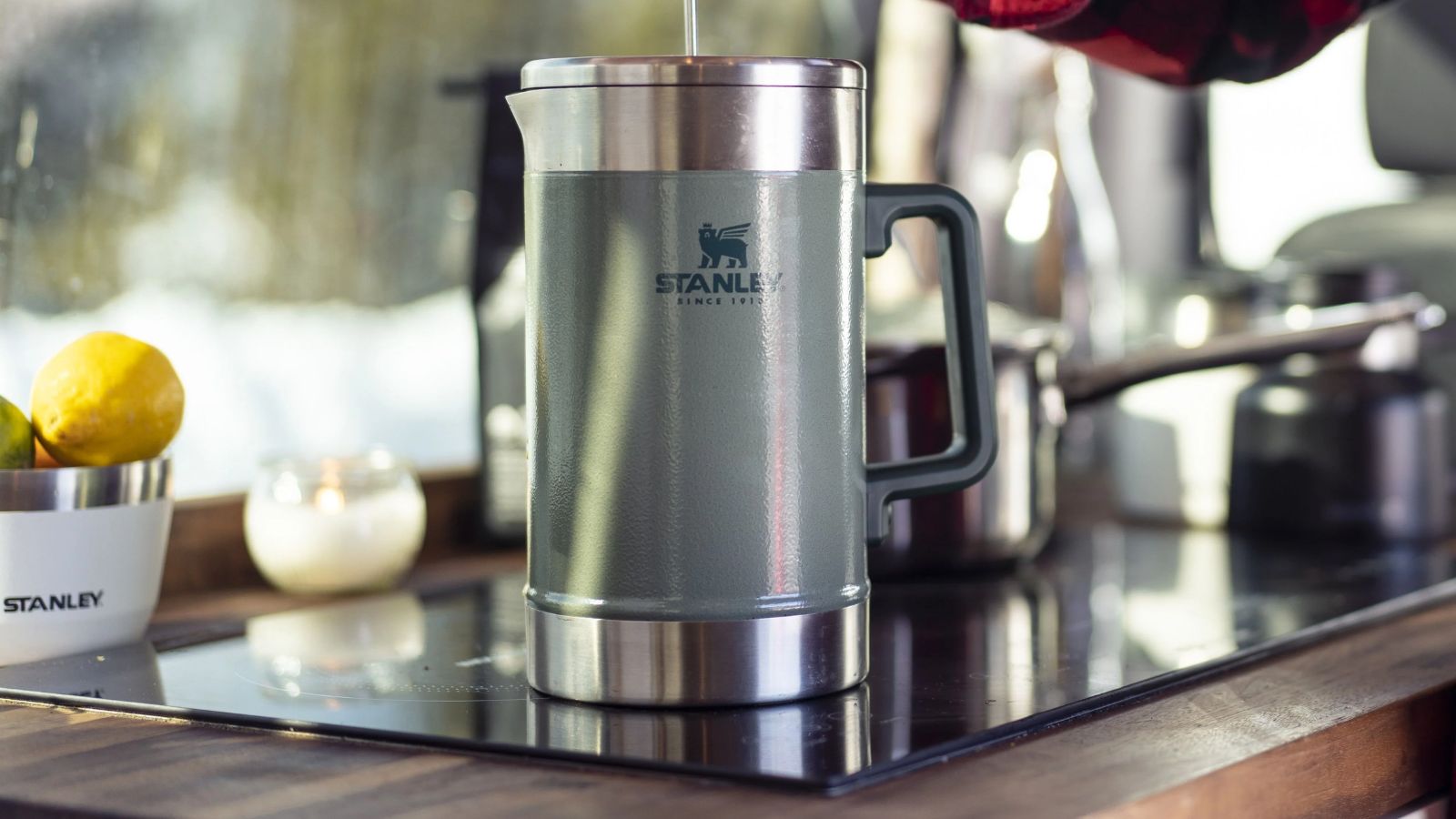
Since the immense success of Stanley's Quencher cup, people have started seeing brand in a new light. Their French press, once relegated to the bottom of tent bags and travel gear, is appearing on more and more wish lists and I'm often asked questions about it.
Given that it's the name on everyone's lips, I thought it was about time that I spilled the tea (not a drop of coffee, you'll be pleased to know) on everything about the Stanley French press.
I took their huge French press to our test kitchen for some formal testing, even though I've used Stanley's French press before. Here, I used it to brew single-servings of coffee as well as a full carafe. I put the Stanley to the test against some of the best French presses on the market. I've plunged, poured, and sipped seemingly endless cups of coffee from the Stanley, so here's everything you need to know, including whether you should buy one.
Specifications
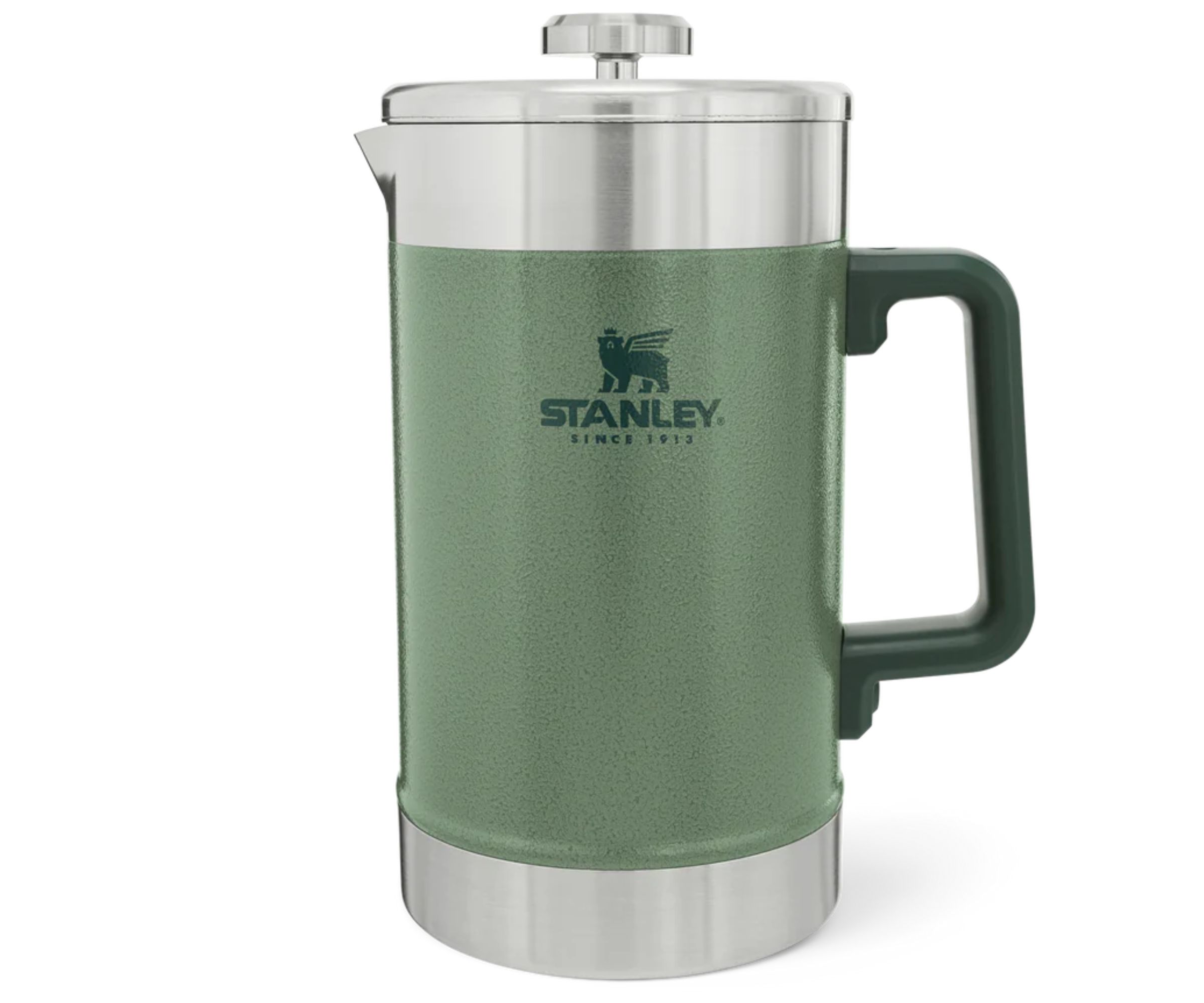
Unboxing
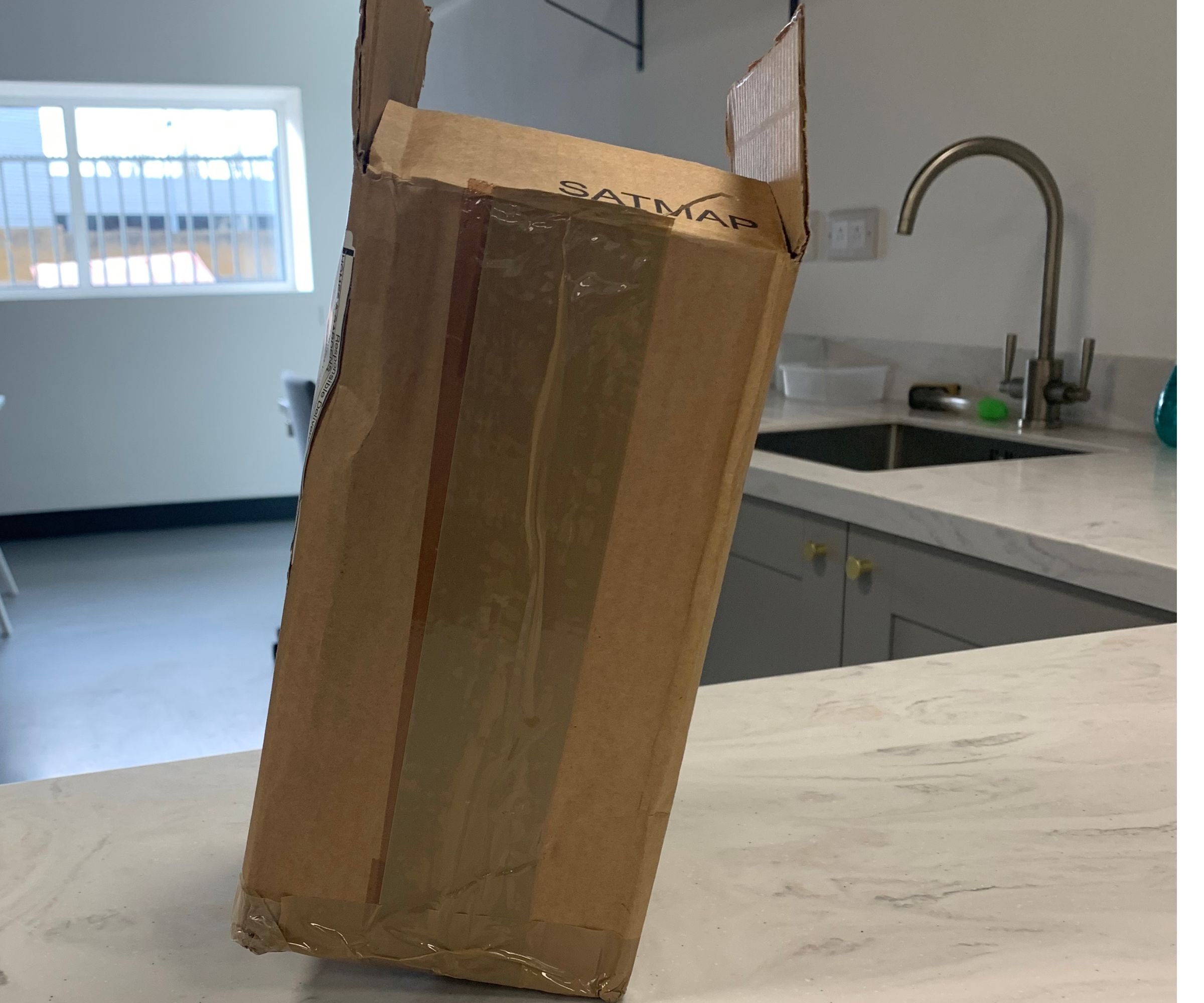
There's minimal packaging and then there's Stanley's packaging. This arrived wrapped in brown paper, no other boxes, no excess plastic, just brown, recyclable paper. For someone like me, who's always looking to put as much in the recycling and next-to-nothing in my main garbage, this was a dream come true. It's not a glamorous unboxing experience, but it's practical and effective, which is, coincidentally, a lot like Stanley's products.
It's a huge, straightforward, no-nonsense French press. I put this on the countertop alongside the sleek Fellow Clara and modern and minimalistic Zwilling and it looked a) huge and b) very functional. It's not winning any points for aesthetics, but that's not Stanley's bag. It offers immense capacity, double-walled insulation, and a French press with a lifetime guarantee. The furthest they go towards beautiful design is a few color options.
Who would it suit?
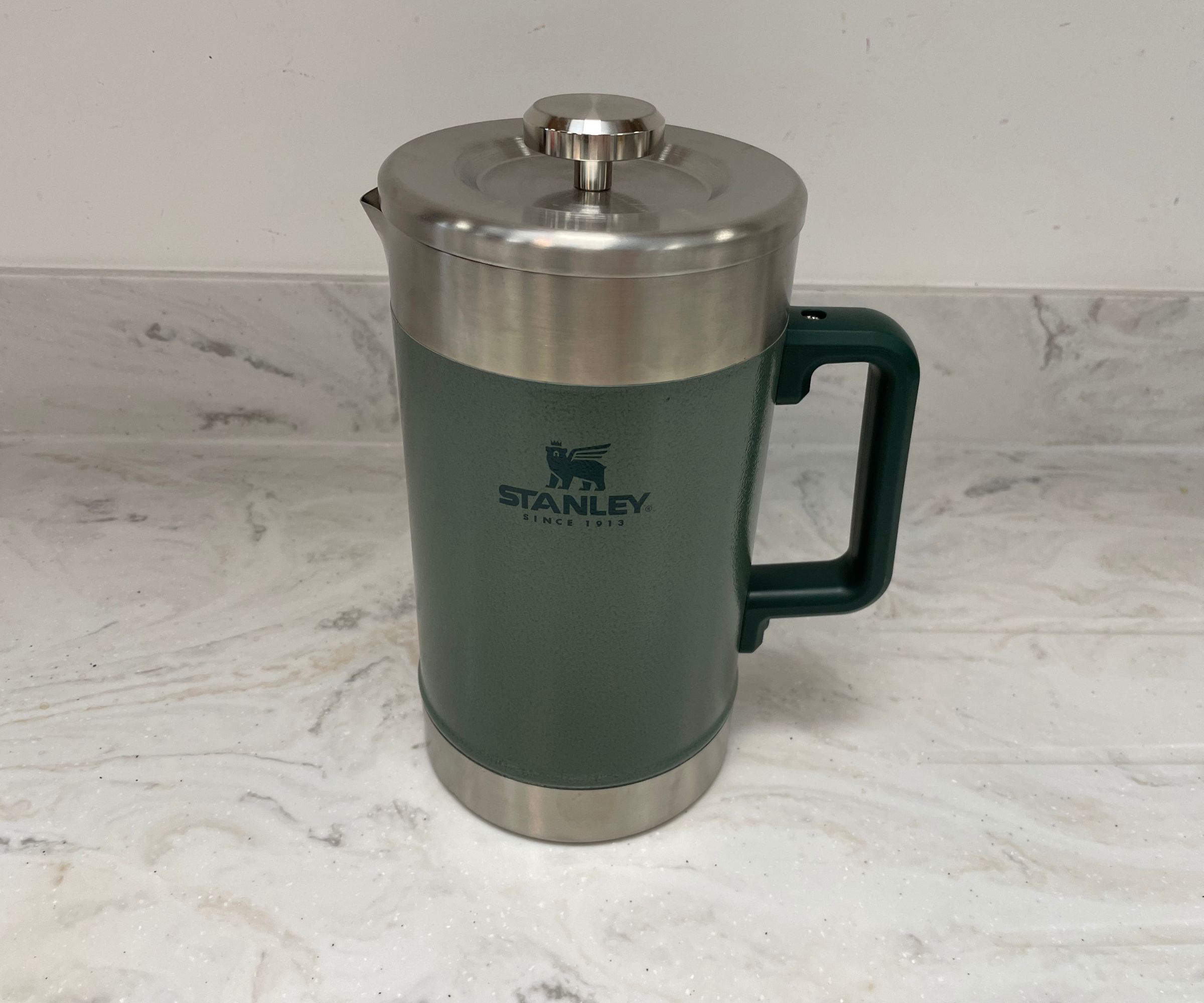
There's two teams of people who use the Stanley. The first group are the campers and travellers who loved Stanley before they were cool. The Stanley French press suits them because it's virtually unbreakable, really well insulated, and it still offers excellent filtration. These people have brought their Stanleys into the kitchen, because it makes coffee just as well as the best French presses.
The second team of people who this suits are those who learnt about Stanley from their infamous Quencher cup, which is normally available at stores such as Walmart. The Stanley French press appeals here because of its capacity (a whopping 42 ounces) and simplicity. It's BPA-free, so good if you're looking for a non-toxic coffee maker) and can keep coffee at a steady, stable temperature.
If you like to experiment with your coffee, Stanley's robust features and filtration comes in handy. It can keep coffee hot for four hours, cold for nine hours, and iced for twenty-four hours — great news if you like an iced coffee or cold brew.
The only people who might wince a little at the Stanley is those cultivating an elegant aesthetic in their kitchen. If you're looking for a classic, delicate, European-style carafe, you'll find the Stanley a big, dominating presence on the countertop.
What is it like to use?
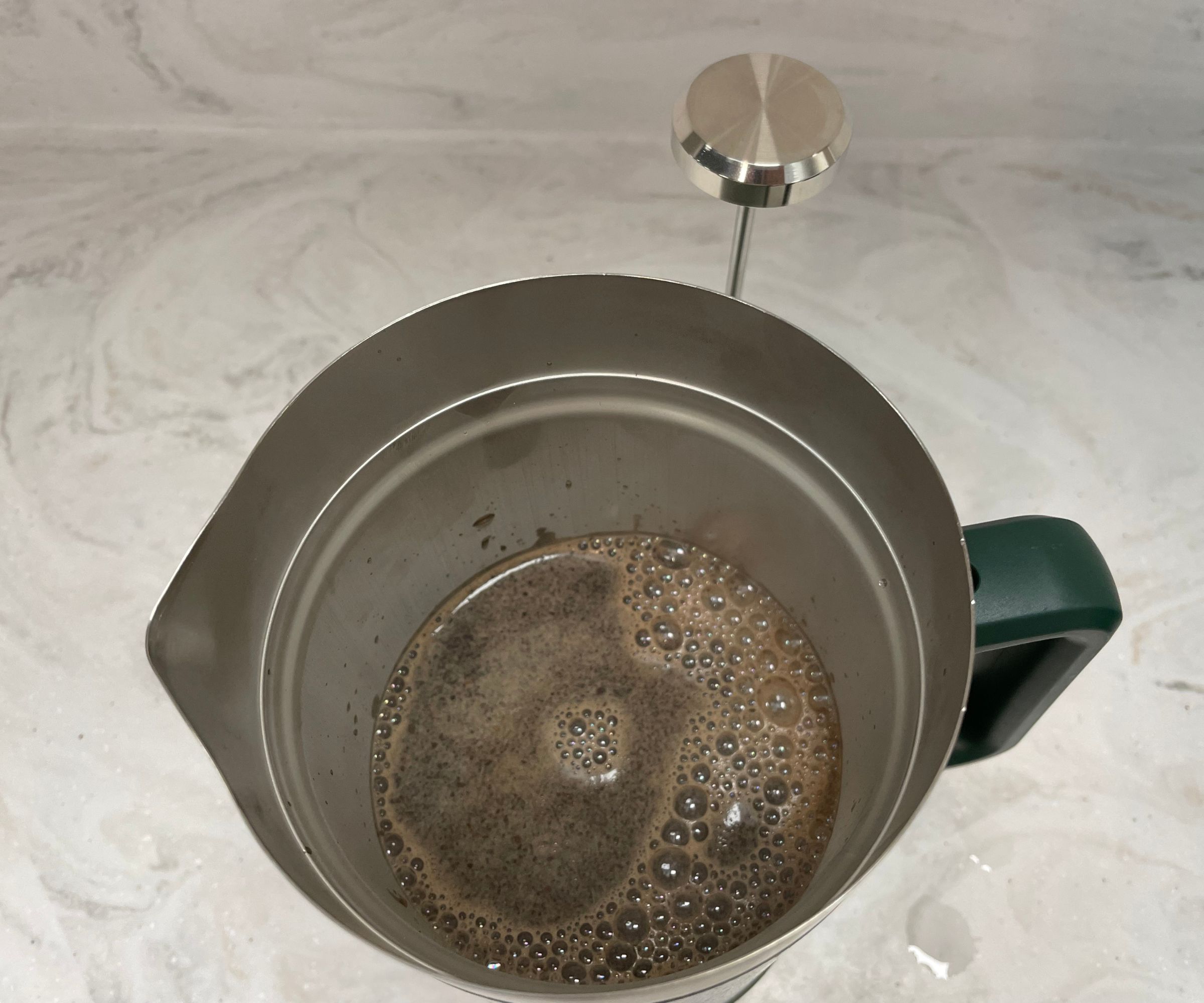
The Stanley is exactly as you would expect it to be. It's designed for flawless functionality, which means it's a real treat to use. The large carafe makes it easy to tip coffee grounds in without making any mess. Again, it's easy to pour boiling water into and then all you have to do is wait.
The outside of the carafe and handle don't get hot, since this is such an expert insulator. It's easy to move the Stanley around if you need to, or to support the main body if you're tipping it.
After five minutes of brewing, I took the temperature of my Stanley and, remarkably, it hadn't cooled by a single degree. My coffee was still 200 degrees Fahrenheit. That's incredible.
I placed the plunger in and pushed the filter through my grounds. I could feel a good seal between the filter and the stainless-steel double walls, but not so much that it made it difficult to plunge. It was the perfect balance, as always with Stanley.
When it was time to taste test, I was quite apprehensive. Some of the other French presses that I was testing had made incredible coffee and Stanley's looked like the lightest of all of them. I used the same 1 part coffee grounds to 12 parts water ratio, so it should have been just as good.
In our taste tests, Stanley's coffee was, as expected, light. It was too hot to sip straight away, which was no surprise given how well this was insulating coffee. However, once it had cooled and we could enjoy a cup of coffee, the flavors were robust and rich. There was no sediment in my first mug, nor my second, nor my third. When it came to pouring my cup of coffee, there was some sediment at the bottom. This is unavoidable and happens with almost every French press I test, so I was expecting it.
Cleaning, storage, and maintenance
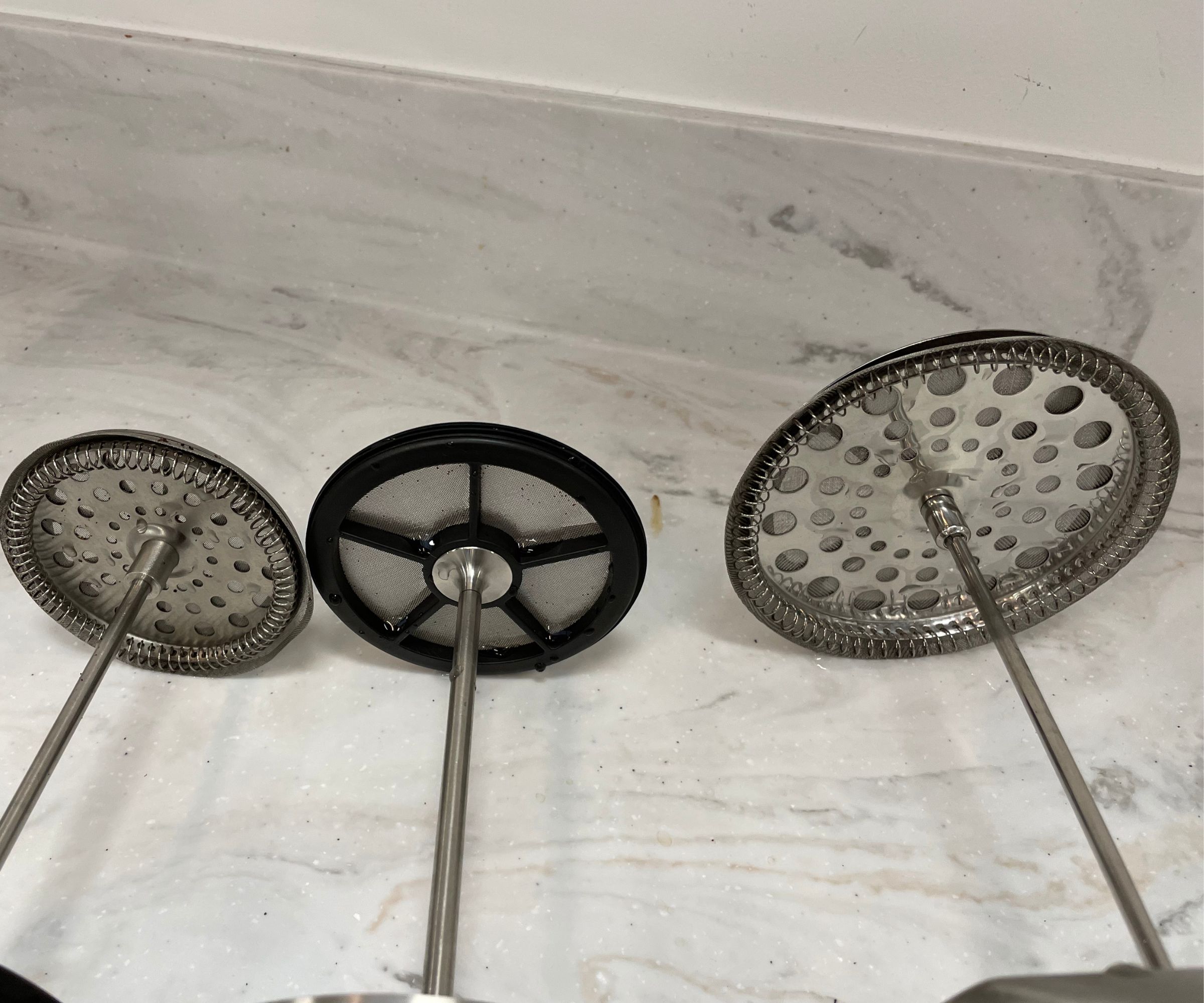
The wide mouth of the Stanley, which made it so easy to fill and pour from, also makes it easy to reach inside and clean. Stainless steel already sets you up for cleaning success, because it doesn't mark or absorb flavors at all. I washed mine by hand and it was close to effortless. However, if you're short on time, all the parts are dishwasher safe, so you can throw them in and forget about them. Thank you Stanley.
As for storage, this is bigger than most other French presses. Whilst it is tall, I did a shelf test and this could still sneak under them and even sat comfortably in deeper drawers. It depends on your kitchen aesthetic, but I would imagine that you're planning on packing your Stanley away (it's not the most beautiful), so just make sure that you have room in your drawers.
How does it rate online?
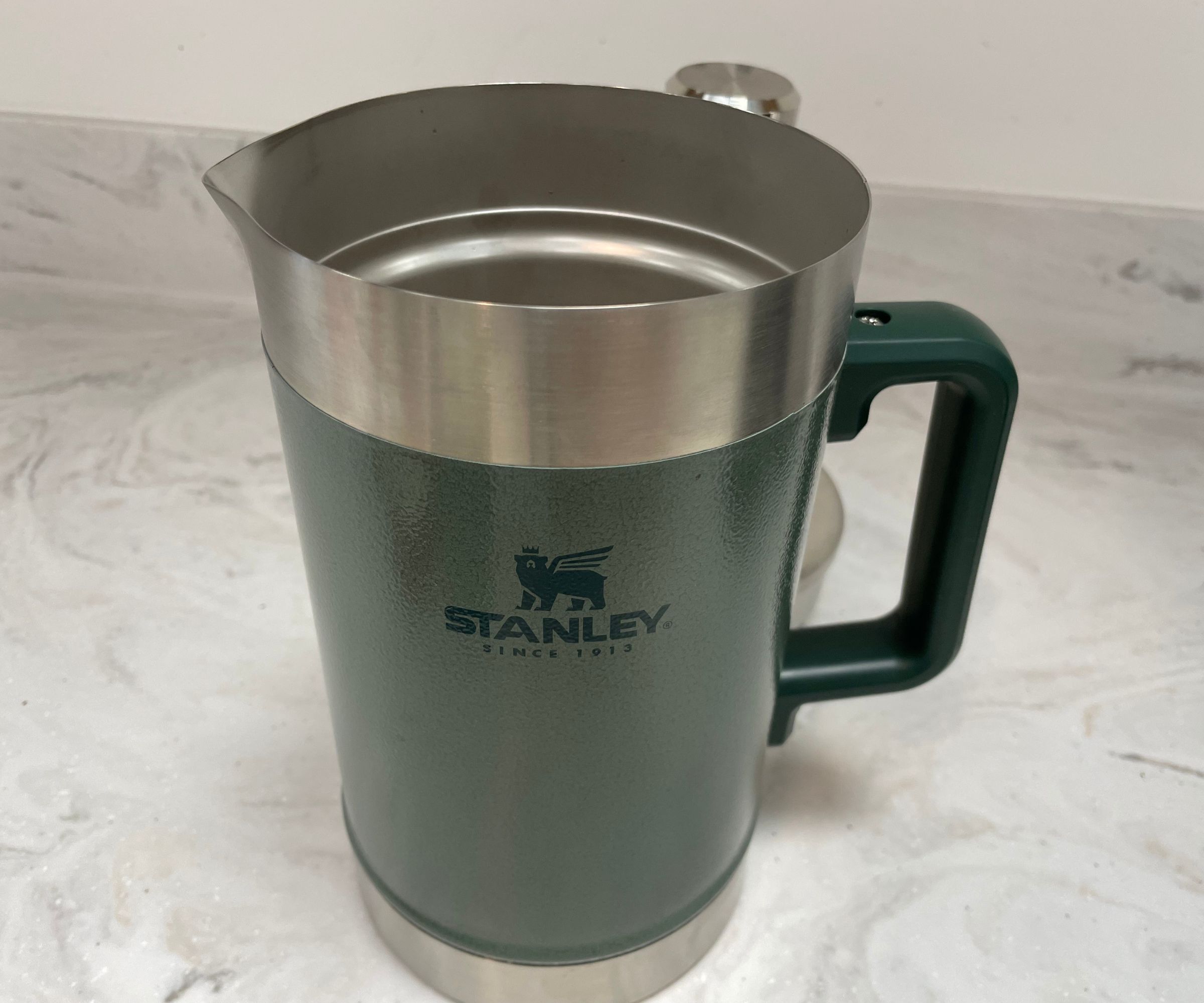
People are asking lots of questions about the Stanley French press, especially because stock, both online and in person, fluctuates so much. For every question posed on Reddit and Google, there's an answer posited by one of the seemingly endless amounts of Stanley French press owners.
One of the most complemented aspects of Stanley's French press is their lifetime guarantee. People who, even through their own fault, damaged any part of their French press received replacement parts, or even a replacement French press, with no questions asked. Seventy dollars for a French press isn't outrageous in and of itself. However, when you're promised that you'll get to keep it for life, it's a relative bargain.
I found plenty of reviewers who had bought this for camping and then migrated it into their kitchens because it was making French press better than their classic carafes. People can't find fault with the flavors, nor any flaws in the function, so it's close to universally loved.
The only feature which people really criticise is that it's too big for one person. They don't question the quality or flavors. In fact, I saw one customer suggest that we all lobby Stanley to start making 20 oz versions. People clearly love it, they just don't need the capacity. There are a few who suggest that the filtration isn't quite up to standard after a few years of use, but I found a number of replies and updates where people asked for new strainers and enjoyed a whole new lease of life from their Stanley filtration.
How does it compare?
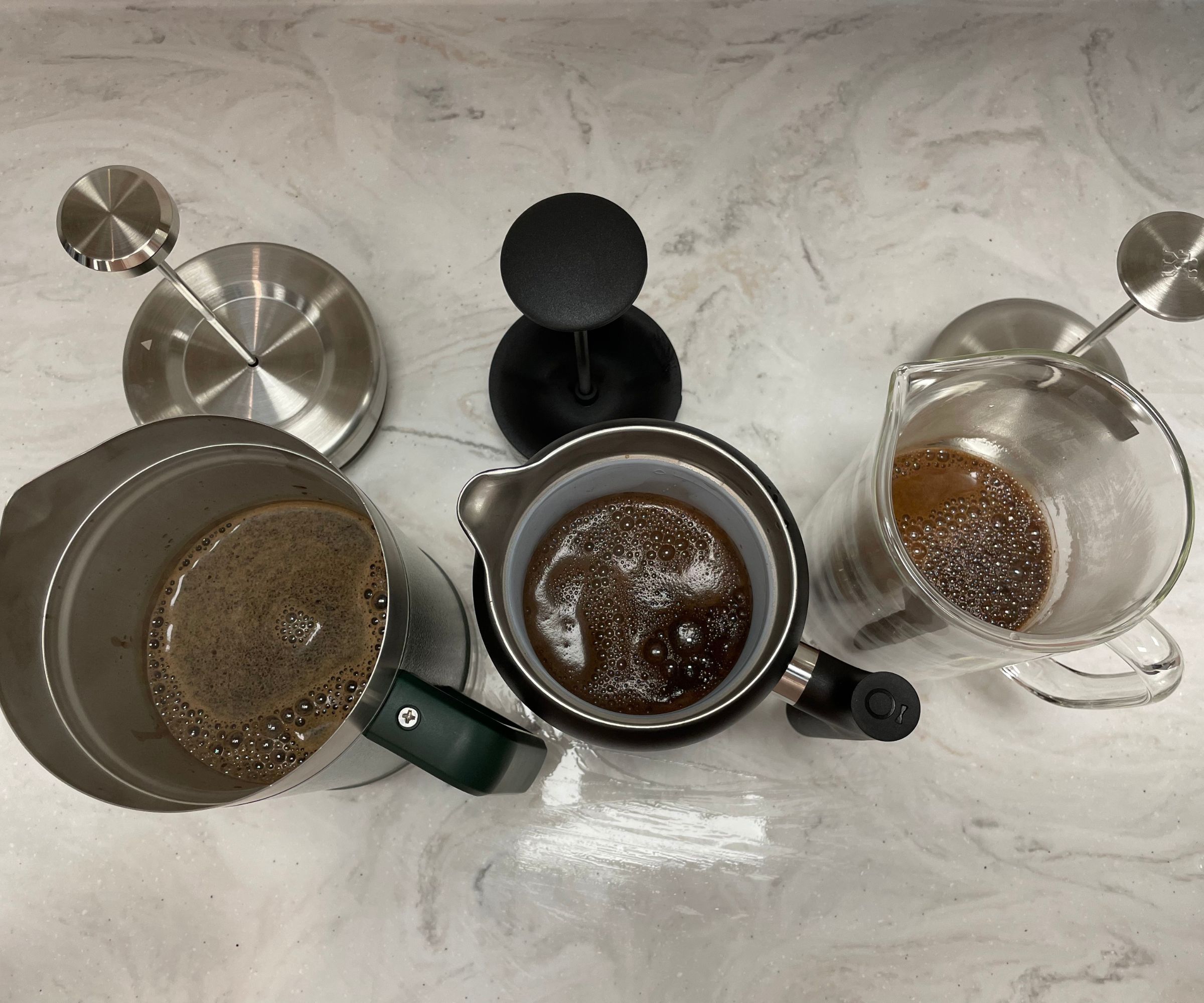
The Stanley is by far the biggest French press we've tested, so if you're looking for capacity, just know, there's none quite like this. However, a few of the other French presses on our tests can rival Stanley's insulation, but in more attractive designs, namely the Fellow Clara.
Of course, the Fellow Clara's 24 ounce capacity is nothing like Stanley's, but its insulation capacity is impressive. The Clara kept my coffee hot for three hours and it didn't show any signs of slowing. I imagine it could rival the Stanley's.
The Clara also offers better filtration. Whilst I had no problem with the Stanley's, the Clara has a tight filter disk and a second, all-round filter which covers the spout, so it's easier to place and smoother to pour from. It's hard to beat the Clara's thoroughness.
Then, of course, aesthetically, the Clara is much more beautiful. It's designed to look sleek and stylish, especially with the neat, wooden paddle, which encourages you to stir the coffee grounds. It's in a different league to the Stanley and still feels equally durable. However, it only comes with two years of warranty. That's still good, but it's not Stanley's forever commitment.
Should you buy it?
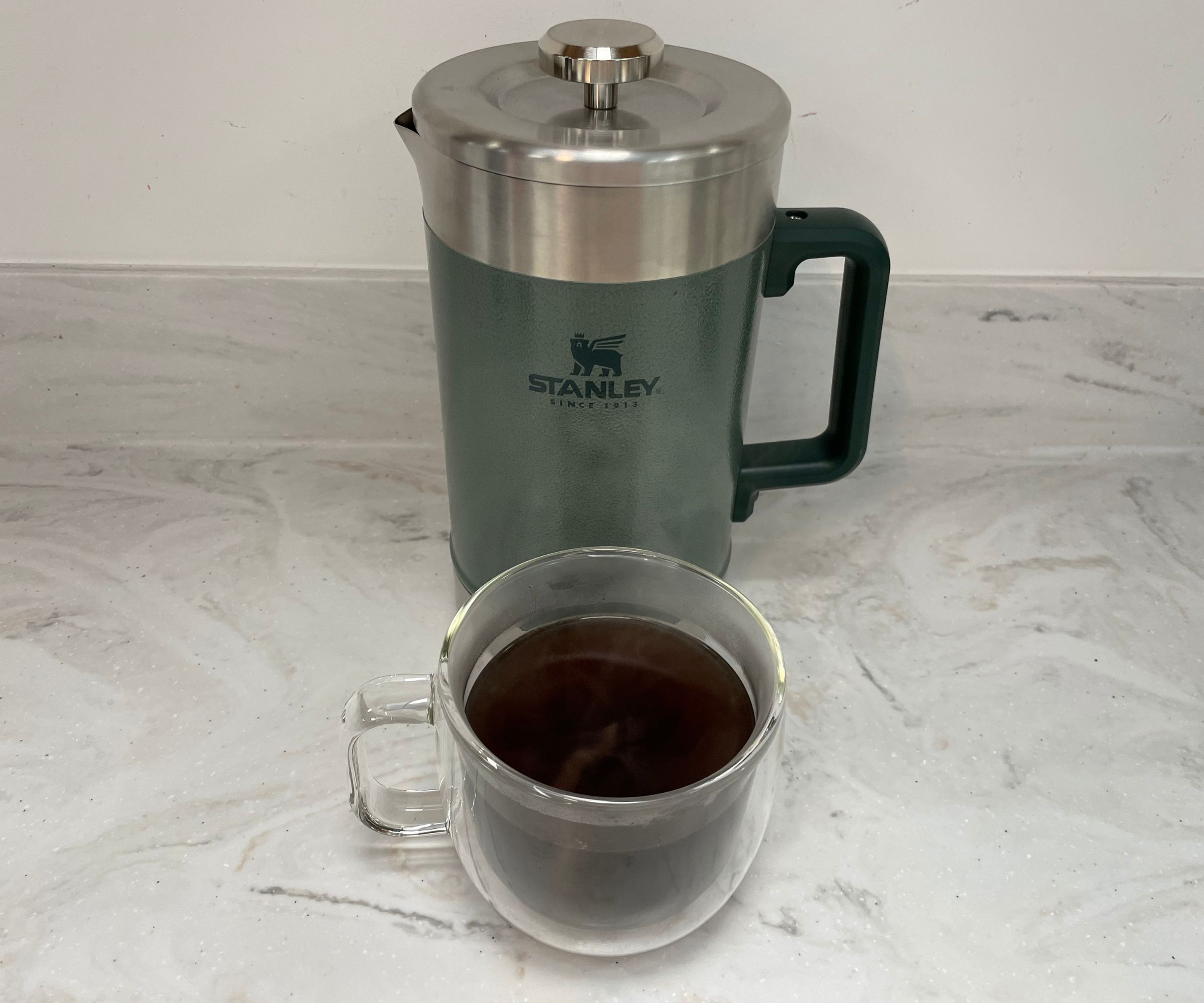
If you need capacity and you won't keep your French press out on the countertop, I can't think of a better, more versatile option than this. I love the Stanley and am impressed with its performance. However, if you want a French press which people will look at and love, your Stanley might be a little more divisive.
How we test
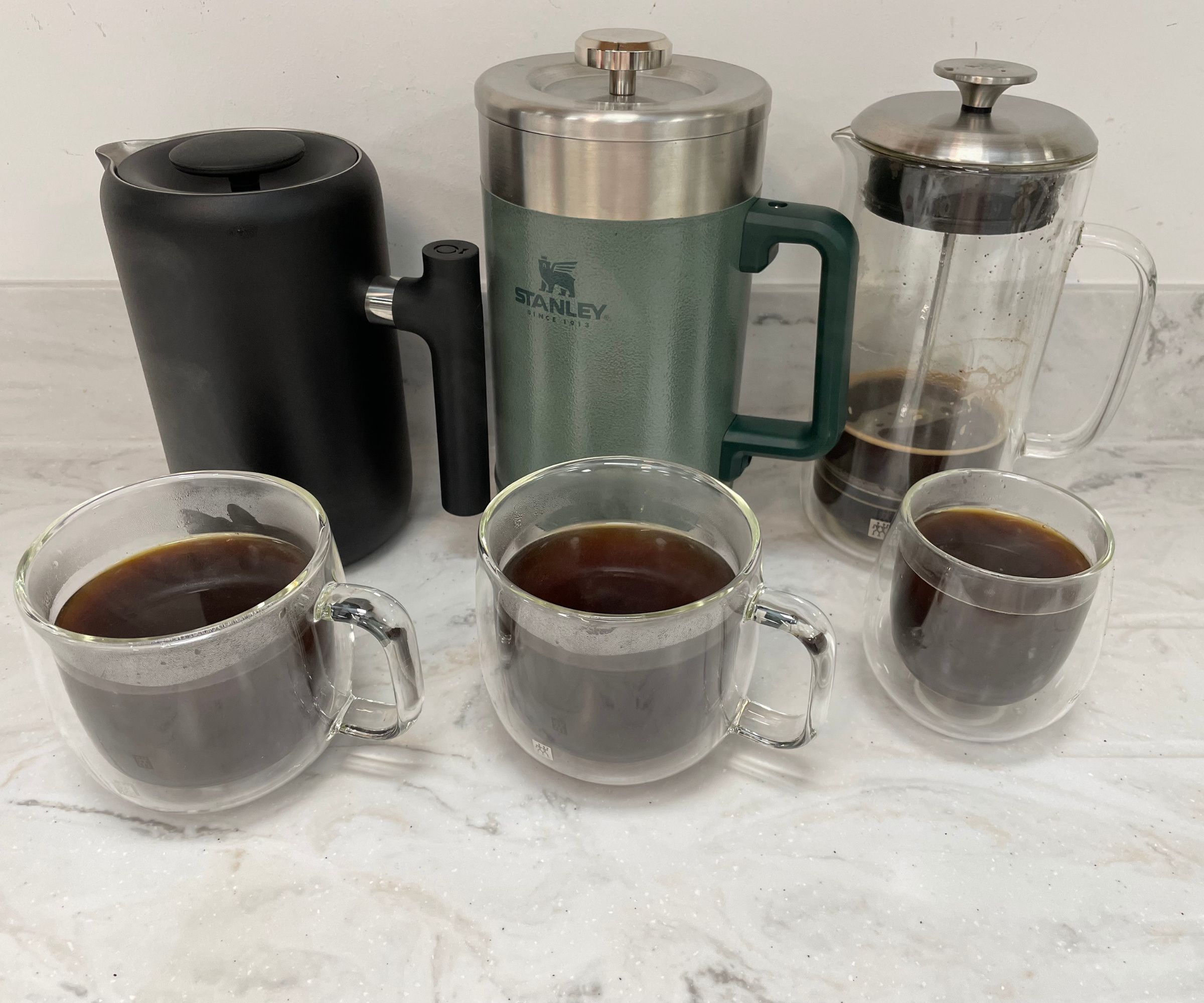
At Homes & Gardens when we're testing coffee, we mean business. Our team of experts takes every product we recommend to our test kitchen. Here, we have a series of standardized tests which a coffee maker needs fly through before we even start to write a review for it.
These tests are simple, but they tell us all we need to know about a French press. All of our French presses (unless they instruct otherwise) are brewed to a ratio of one part coffee to twelve parts boiling water. We let the coffee steep for five minutes, before we take the temperature. We want out coffee to reach 200 degrees and, the longer it can stay that way, the better.
We'll then filter the coffee and pour it into cups, looking for leaking and any graininess as we pour. Then, most importantly, we can undertake the taste test. A good cup of French press coffee tastes acidic and bold. The flavors should be rich and punchy and if that isn't happening, something isn't right, either with the filtration or temperature control (we use the same coffee beans on the same ground setting to make sure everything else can stay the same).
Next, we wash up the French presses, or, if they're dishwasher safe, we disassemble them. Here's where we'll catch any storage or cleaning quirks that you need to know about. In short, we test every aspect of a French press, so that by the time you're ready to invest, you know everything you need to.
If you're interested in finding out more, you can visit our dedicated page for how we test coffee makers.







